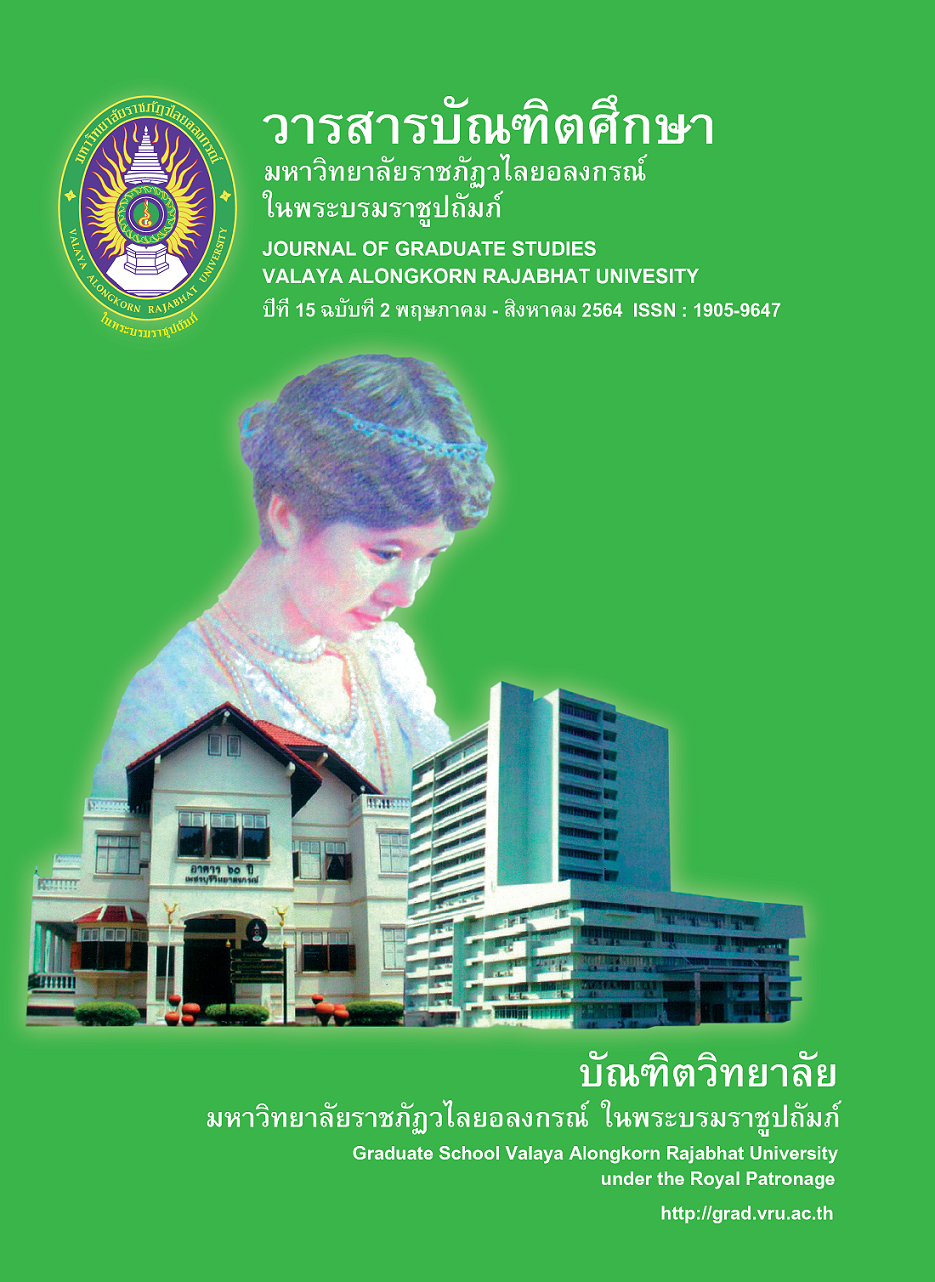PHENOMENON-BASED LEARNING: INTEGRATED LEARNING FOR ENHANCING LEARNERS’ KNOWLEGDE IN THE REAL WORLD
Main Article Content
Abstract
Phenomenon-based learning is an approach of Finnish education after educational reform in 2016. The teaching approach is based on the phenomena of the world in different topics of learners’ view, called integrated learning. Learners ask questions and find the answers through cooperative problem solving beyond the classroom via the internet and information system in the digital era for enhancing the learner’s knowledge in the real world. This article presents the concept of phenomenon-based learning, student/instructor roles, and the steps of instruction for educational instructors to use and apply in learning management.
Article Details

This work is licensed under a Creative Commons Attribution-NonCommercial-NoDerivatives 4.0 International License.
บทความทุกเรื่องได้รับการตรวจความถูกต้องทางวิชาการโดยผู้ทรงคุณวุฒิ ทรรศนะและข้อคิดเห็นในบทความ Journal of Global of Perspectives in Humanities and Social Sciences (J-GPHSS) มิใช่เป็นทรรศนะและความคิดของผู้จัดทำจึงมิใช่ความรับผิดชอบของบัณฑิตวิทยาลัย มหาวิทยาลัยราชภัฏวไลยอลงกรณ์ ในพระบรมราชูปถัมภ์ กองบรรณาธิการไม่สงวนสิทธิ์การคัดลอก แต่ให้อ้างอิงแหล่งที่มา
References
Anderson, L. W., et. al. (2001). Taxonomy for Assessing a Revision of Bloom's Taxonomy of Educational Objectives. New York: Langman.
Bureau of Academic Affairs and Educational Standards, Office of the Basic Education Commission, Ministry of Education. (2019). Training report : Science Education for Science and Mathematical Gifted Learner The Normal Lyceum of Helsinki, Faculty of Behavioral Sciences in University of Helsinki. Retrieved from https://www.obec.go.th/wp-content/uploads/2019/06/Finland-%E0%B8%AA%E0%B8%A7%E0%B8%81.pdf
Butkatunyoo, O. (2018). kānrīanrū dōi chai prākottakān pen thān phư̄a kānsāng mummō̜ng bǣp ʻong rūam læ kān khaothưng lōk hǣng khwām čhing khō̜ng phū rīan [Phenomenon based Learning for Developing a Learner’s Holistic Views and Engaging in the Real World]. Journal of Education Studies. 46(2), 348–65.
Daehler, K. & Folsom, J. (2016). Making Sense of SCIENCE: Phenomena-Based Learning. Retrieved from: http://www.WestEd.org/mss
Francis, C., Breland, T. A., Østergaard, E., Lieblein, G. & Morse, S. (2013). Phenomenon-based learning in agroecology: A prerequisite for transdisciplinarity and responsible action. Agroecology and Sustainable Food Systems. 37(1), 60–75.
Halinen, I. (2018). The New Educational Curriculum in Finland. In M. Matthes, L. Pulkkinen, C. Clouder, & B. Heys (Eds). Improving the Quality of Childhood in Europe. 7(pp. 75–89). Brussels, Belgium: Alliance Childhood European Network Foundation.
Islakhiyah, K., Sutopo, S. & Yulianti, L. (2018). Scientific Explanation of Light through Phenomenon-based Learning on Junior High School Student. Advances in Social Science, Education and Humanities Research. 218(ICoMSE 2017), 173–185.
Lähdemäki, J. (2018). Case Study: The Finnish National Curriculum 2016—A Co-created National Education Policy. In J. W. Cook (Ed.) Sustainability, human well-being, and the future of education (pp. 397-422). London: Palgrave Macmillan.
Mahavijit, P. (2017). nawattakam kānrīanrū čhāk finlǣn [Learning Innovation from Finland]. NSTDA magazine. 46(209), 40-45
Mattila, P. & Silander, P. (Ed.). (2015). How to Create the School of the Future– Revolutionary thinking and design from Finland. Finland: Multprint.
Ministry of Education, Office of the Education Council. (2017). phǣnkān sưksā hǣng chāt Phō̜.Sō̜. sō̜ngphanhārō̜ihoksip - sō̜ngphanhārō̜ičhetsipkāo [National Education Plan 2017-2039]. Bangkok: prigwhan.
National strategy (2018-2037). (2018, 13 October). Rātchakitčhānubēksā [Royal Thai Government Gazette]. 135(82ก)
Nuora, P. & Välisaari, J. (2019). Kitchen chemistry course for chemistry education students: influences on chemistry teaching and teacher education – a multiple case study. Chemistry Teacher International. 2(1), 1–10.
OECD (2016), PISA 2015 Assessment and Analytical Framework: Science, Reading, Mathematic and Financial Literacy. Retrieved from: https://doi.org/10.1787/9789264255425-en.
Symeonidis, V. & Schwarz, J. F. (2016). Phenomenon-Based Teaching and Learning through the Pedagogical Lenses of Phenomenology: The Recent Curriculum Reform in Finland. Forum Oświatowe. 28(2), 31–47.


